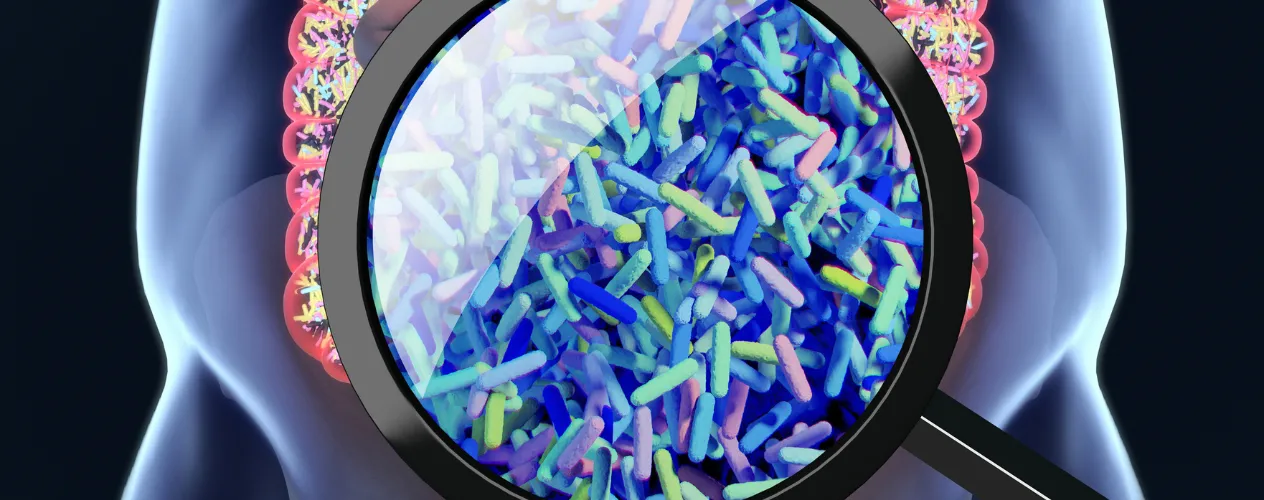Discrimination exposure impacts unhealthy processing of food-cues: Crosstalk between the brain and gut
UCLA researchers find altered responses in certain brain regions, and changes in the gut associated with inflammation, oxidative stress and obesity.

People frequently exposed to racial or ethnic discrimination may be more susceptible to obesity and related health risks in part because of a stress response that changes biological processes and how we process food cues. These are findings from UCLA researchers conducting what is believed to be the first study directly examining effects of discrimination on responses to different types of food as influenced by the brain-gut-microbiome (BGM) system.
The changes appear to increase activation in regions of the brain associated with reward and self-indulgence – like seeking “feel-good” sensations from “comfort foods” – while decreasing activity in areas involved in decision making and self-control.
“We examined complex relationships between self-reported discrimination exposure and poor food choices, and we can see these processes lead to increased cravings for unhealthy foods, especially sweet foods, but also manifested as alterations in the bidirectional communication between the brain and the gut microbiome,” said Dr. Arpana Gupta, a researcher and co-director of the UCLA Goodman-Luskin Microbiome Center and the UCLA G. Oppenheimer Center for Neurobiology of Stress and Resilience. Gupta is senior author of the paper, Discrimination exposure impacts unhealthy processing of food cues: crosstalk between the brain and gut, which appears in Nature Mental Health.
Previous studies have looked into many factors – genetics, diet, exercise, and others – that could contribute to disproportionately high rates of obesity and related disorders occurring in African Americans and others in communities of color. Few studies have addressed the potential role of discrimination in obesity, and this is the first known study providing direct evidence of possible brain-gut interactions linking discrimination to eating behaviors.
“We found that changes in the brain, in response to discrimination experiences, affect how our gut processes what we eat, which is associated with an increased risk of developing obesity,” said Dr. Hiram Beltrán-Sánchez, associate professor of community health sciences at the UCLA Fielding School of Public Health. “Our findings provide clear evidence for the first time that greater discrimination exposure links with obesity and obesity-related conditions, operating through the brain-gut connection,” said Beltrán-Sánchez.
The findings are based on results of functional MRI brain scans, sophisticated statistical modeling techniques, and analyses of metabolites of the glutamate pathway in the digestive tract.
Participants included 107 people – 87 women and 20 men – of diverse racial and ethnic backgrounds who completed a validated and widely used questionnaire that measures chronic experiences of unfair treatment. Based on their scores, participants’ responses were divided into “high discrimination exposure” and “low discrimination exposure” groups.
All participants provided stool samples. They also completed a “food-cue” task while MRI brain scans were acquired to evaluate brain responses to pictures of five different types of food:
- Unhealthy, high-calorie, savory.
- Unhealthy, high-calorie, sweet.
- Healthy, low-calorie, savory.
- Healthy, low-calorie, sweet.
- Non-food – a control comparison consisting of pixelated images created from pictures of food.
Using these measurements, the researchers focused on discrimination-related differences in the various food group categories – looking at responses to the food cues in key regions of the brain. Results showed:
- In people reporting more discrimination experiences, unhealthy food cues caused greater activation in regions of the brain associated with reward processing, motivation, cravings, and appetite responses. These regions have been linked to the “feel-good” aspects coming from consuming certain food.
- Stress from discrimination experiences altered brain responses in brain regions involved with self-regulation in response to food cues for unhealthy foods, but not for healthy foods.
- Unhealthy sweet food played a major role in the bidirectional communication between the brain and gut microbiome.
Through analysis of fecal samples, the researchers looked for changes in 12 glutamate metabolites – substances resulting from the breakdown of glutamate. As a neurotransmitter, glutamate has been associated with numerous stress responses and aging, and in this study, participants in the greater discrimination group had higher levels of two glutamate metabolites that have been implicated in inflammatory processes, oxidative stress and increased risk for developing obesity.
The authors say considering both the present results and previously published research, greater discrimination exposure may lead to alterations in the bidirectional brain-gut microbiome communication that skews our biology towards unhealthy eating behaviors and cravings for unhealthy foods. This occurs via inflammatory processes in the brain-gut microbiome system involved in dysregulations of glutamatergic signaling and modulation of the frontal-striatal circuits.
Gupta said the revelations may help researchers develop treatments that target the brain or the gut.
“At the brain level, treatments could be developed to modulate the food-related reward system or the hyper-aroused brain circuits associated with stress and discrimination exposure. On the other end of the spectrum, at the gut level, it also means we can target the glutamatergic pathways – possibly with probiotic supplementation or anti-inflammatory dietary changes – as a therapeutic approach to treat stress-related experiences such as discrimination,” she said.
Authors: In addition to senior and corresponding author Dr. Arpana Gupta, authors include: Drs. Xiaobei Zhang, Hao Wang Lisa A. Kilpatrick, Tien S. Dong, Gilbert C. Gee, Jennifer S. Labus, Vadim Osadchiy, Hiram Beltran-Sanchez, May M. Wang, and Allison Vaughan, all of UCLA.
Funding: This research was supported by grants from the National Institutes of Health including MD015904 (AG), R03 121025 (AG), K23 DK106528 (AG), ULTR001881/DK041301 (UCLA CURE/CTSI Pilot and Feasibility Study (AG); and pilot funds provided for brain scanning by the Ahmanson-Lovelace Brain Mapping Center. These funders played no role in study design, or the collection, analysis, and interpretation of the data.
Competing interests: AG is a scientific consultant for YAMAHA.
Written by: David Sampson
Our findings provide clear evidence for the first time that greater discrimination exposure links with obesity and obesity-related conditions, operating through the brain-gut connection.
Associate Professor, Department of Community Health Sciences





















